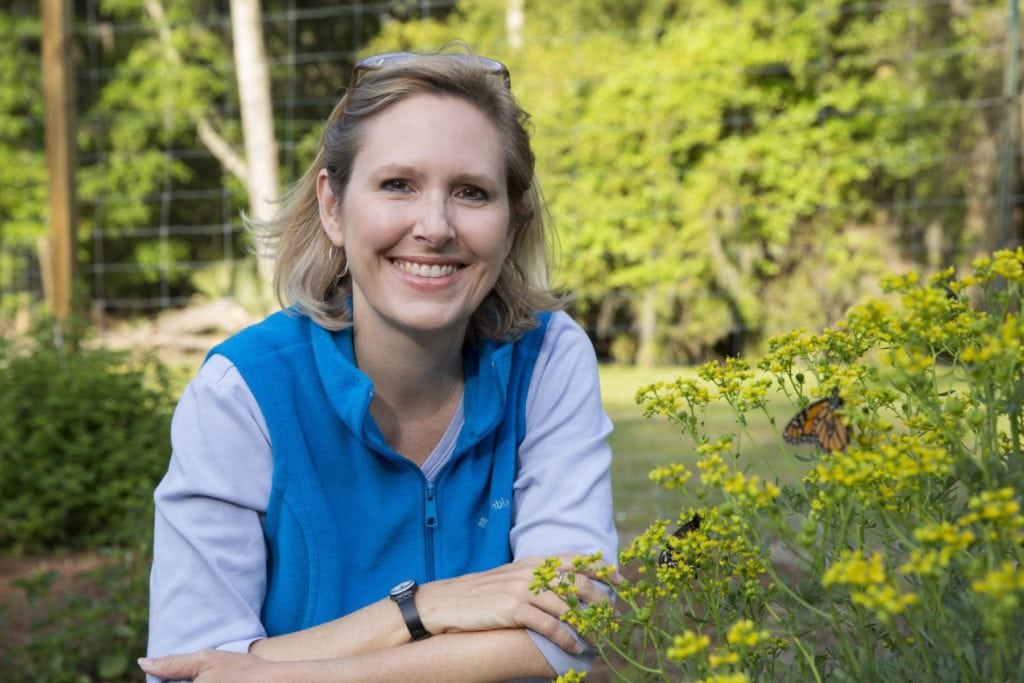Sonia Altizer has been named a Fellow of the American Association for the Advancement of Science (AAAS), one of four University of Georgia faculty members honored by their peers for “scientifically or socially distinguished efforts to advance science or its applications.”
These four faculty members are among 489 new AAAS Fellows who will receive an official certificate and a gold and blue—representing science and engineering, respectively—rosette pin. They will be formally inducted during a ceremony on Feb. 13, 2021, bringing the total number of active AAAS Fellows at UGA to 38. More than 180 UGA-affiliated faculty have been named AAAS Fellows since the organization began electing them in 1874.
“This is yet another recognition that our faculty continue to break new scientific ground and earn the respect and recognition of their peers across the country,” said David Lee, vice president for research. “To be named an AAAS Fellow is a major milestone in one’s research career, and I congratulate all of our latest elected Fellows on their tremendous achievements.”
The 2020 AAAS Fellows from UGA are:
Sonia Altizer, UGA Athletic Association Professor and associate dean for research and operations in the Odum School of Ecology, an ecologist who studies infectious diseases in natural populations and their role in wildlife conservation. Altizer is noted for contributions to the field of ecology, particularly in understanding how animal movement and environmental change affect pathogen spread and evolution.
John Burke, Distinguished Research Professor and head of the Department of Plant Biology at the Franklin College of Arts and Sciences, who studies plant evolutionary genetics and genomics. He primarily studies the genetic basis of evolutionary divergence within the sunflower family. Burke is noted for contributions to the field of evolutionary genomics and domestication of crops, using sunflowers as a model.
Diana Downs, professor of microbiology at the Franklin College of Arts and Sciences, who researches the integration of metabolic pathways that results in the physiology associated with microbes. Downs is noted for contributions to the field of bacterial metabolism and physiology, especially metabolic pathway integration stress.
Rick Tarleton, Regents’ Professor and UGA Athletic Association Distinguished Professor of cellular biology at the Franklin College of Arts and Sciences, who studies the immunology and pathology of Trypanosoma cruzi infection and the resulting syndrome known as Chagas disease. Tarleton is noted for contributions to the field of biological sciences, particularly for his research contributions and leadership to control the Chagas disease.

